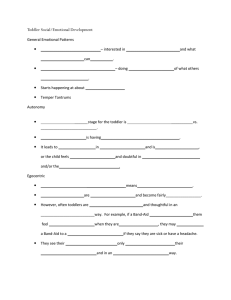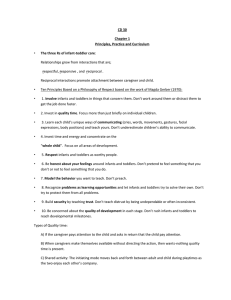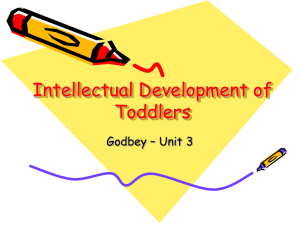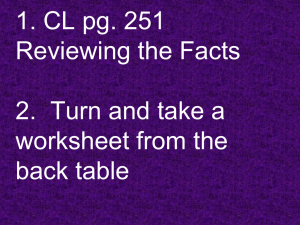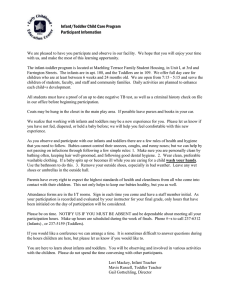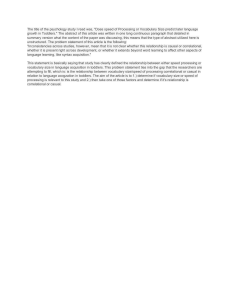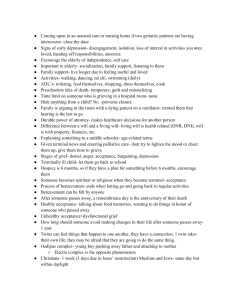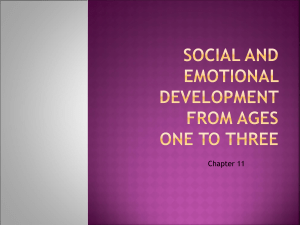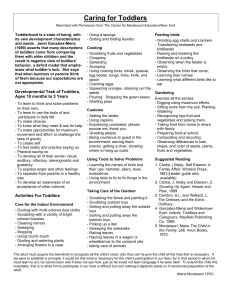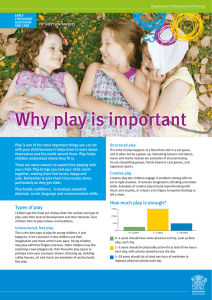T I P HE
advertisement
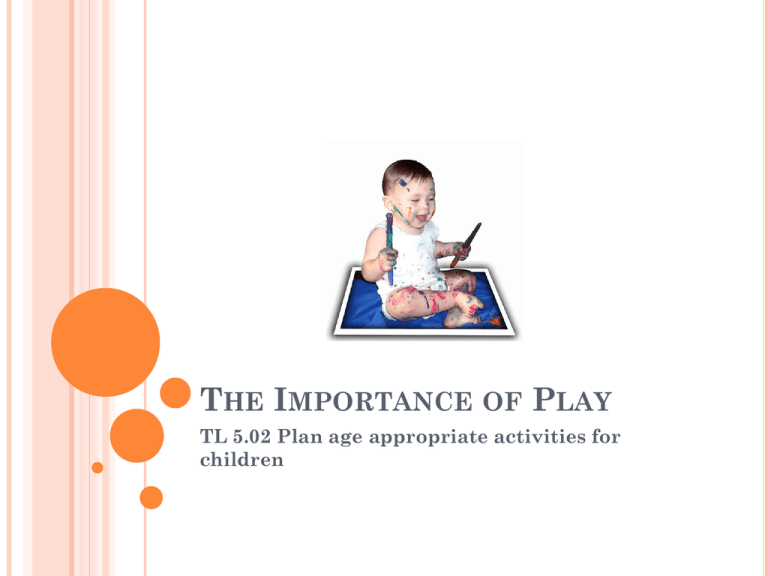
THE IMPORTANCE OF PLAY TL 5.02 Plan age appropriate activities for children PLAYING SPURS ON DEVELOPMENT AREAS Physical Intellectual Emotional Social Moral ACTIVE VS. QUIET PLAY _____________________________________________ and releases energy ______________________________________________ SENSORY TOYS Objects with__________________________________ ______________________________________________ _______________ SHOULD CAREGIVERS FORCE AN INFANT TO PLAY? No…the infant (_____________________) may be hungry, tired, or interested in something else, and forcing them can upset them TODDLERS LEARNING CONCEPTS Larger/smaller Full/empty ______________________________________________ ______________________________________________ PLAYING WITH WATER, SAND, MODELING CLAY, DOUGH, AND FINGER PAINTS These activities spur creativity and help develop____________________________________ TODDLERS SHORT ATTENTION SPAN Toddlers (ages 1-3) ____________________ ____________________________in order to keep playtime fun and stimulating TODDLERS REFUSING TO SHARE ___________________________________________the toddler’s behavior PRESCHOOLERS LEARN TO PRETEND Preschoolers (ages 3-5)________________________ ______________________________________________ _______________ DISTRACTING CHILDREN ________________________________as it leads kids away from undesirable behavior and keeps them busy with an interesting activity COMPETITIVE PLAY Caregivers can emphasize the pleasure of play, explaining that the outcome is based on luck, and_________________________________________ BENEFITS OF READING ______________________________________________ _____________________________________________ Develops imagination and learning abilities Fulfills emotional and social needs TIPS FOR READING WITH YOUNG CHILDREN ___________________________________________ Be patient if a child wants the same story read over and over Let children look at the pictures in the book you are reading Talk about the story, act it out, or refer to it later TELEVISION CAN BE HARMFUL _____________________________________________, and it may have inappropriate content MANAGING TV WATCHING Caregivers should: Watch TV with the child Limit watching Turn off unsuitable shows Turn the television off if the child is not interested ______________________________________________


